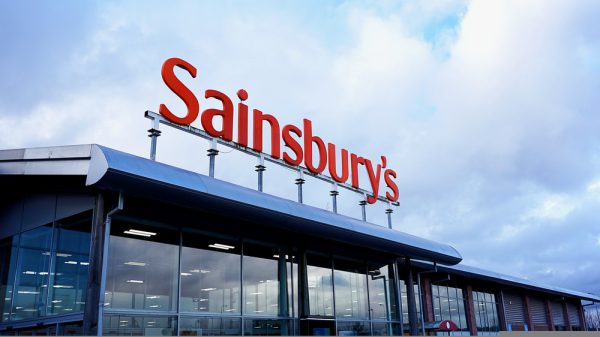With retail crime rates surging by more than 20% over the past year and nine out of every ten shopworkers suffering abuse from customers, supermarkets have been forced to take drastic measures to address the problem.
From shoplifting to violent assaults on workers, the level of crime is rising as the cost-of-living crisis begins to bite.
With inflation at its highest level for years and energy prices expected to surge later this year, grocers have been introducing body cameras and security tags to help tackle threats and acts of violence towards retail staff.
While some UK supermarkets have been putting security tags on basic food items like cheese, body cameras have also been popping up in shops across the UK. But why is the rise in security measures needed – and is it making a difference?
READ MORE: Co-op announced £1m investment in crime prevention measures
Abuse of supermarket staff: The wider problem
Abuse and violence towards shop workers and service staff is on the rise again, research shows, with a quarter of those reporting hostility blaming the cost-of-living crisis for putting increased stress on customers.
New figures from The Institute of Customer Service found that 44% of frontline service staff have experienced hostility from customers in the past six months, a rise from 35% in February.
The surge in retail crime rates comes as new powers are introduced, allowing for stiffer penalties for those who attack and abuse shopworkers. The Police, Crime, Sentencing and Courts Act 2022 was given royal assent in April.
The policy change came after a host of retailers reported a surge in attacks on workers during the pandemic.
Tensions are continuing to rise however, and this is thought to be linked with declining consumer sentiment amid the cost-of-living crisis, according to the ICS.
READ MORE: Abuse against retail staff surges amid cost of living stress
What supermarkets are doing
Sainsbury’s senior media relations manager, Sophie Brazier, said: “We have a range of security measures to keep our colleagues and customers safe. For example, personal safety devices – body-worn cameras – have been available to colleagues at our supermarkets, convenience stores and petrol filling stations for at least over a year.”
Tesco has also reported an increase in anti-social behaviour towards its colleagues over the last two years. The UK’s largest supermarket rolled out body-worn cameras in all stores (including petrol filling stations) for security officers, duty managers and other shop-floor colleagues during the pandemic.
The rollout of cameras – which are not in use until they are needed – has contributed towards an impressive 12% reduction in physical assaults on Tesco colleagues.
If a colleague feels that a situation is escalating, they will inform the person or people involved and anyone close-by that they are turning on their body-worn camera. Tesco says this statement alone is often enough to de-escalate the situation.
It’s also useful for after the event, as body cameras give a more accurate visual than instore CCTV systems, making them more effective when helping to identify individuals.
Despite this, Co-op Group spokesperson Andrew Torr argued that body camera use is unrelated to the cost-of-living crisis.
“Although we have been using body-worn cameras for several years at the Co-op – and they are now in over 500 of our stores where they are known to stop incidents from escalating and provide additional reassurance and peace of mind to front line shop workers – it would be inaccurate to suggest their use is connected to the cost-of-living crisis.”
READ MORE: 43% of shoppers don’t trust supermarkets amid cost-of-living crisis
What unions and associations are doing
Retail trade union Usdaw has recently been calling for more action to ensure that the “appallingly high” levels of abuse, threats, and violence against shopworkers is taken seriously.
Usdaw general secretary, Paddy Lillis, said: “Too often shopworkers are confronted with violence, threats, and abuse as a part of their daily working lives. Usdaw’s latest survey results clearly show the scale of the problem, with almost 90% of shopworkers suffering abuse, two-thirds threatened and nearly one in ten assaulted.
“Retail workers, their friends, family and loved ones, are saying loud and clear that enough is enough, abuse should never be just a part of the job.”
According to the 2021 Association of Convenience Stores (ACS) Crime Report, 89% of colleagues working in local shops have experienced some form of abuse, with over 1.2 million incidents recorded over the last year.
Crimes committed against the convenience sector cost £142m over the last year alone, equating to over £3,000 per store.
The report also revealed that stores have also invested heavily over the last year to make their businesses safer. Over £175m has been spent by retailers on crime prevention measures like CCTV, external security staff and intruder alarms.
Taken together with the cost of crimes committed, there is effectively a 5p crime tax on every transaction in stores.
Assistant director of regulatory affairs at the British Retail Consortium (BRC), Graham Wynn, said: “Retailers spend huge sums on crime prevention, and our most recent crime survey showed they spent three quarters of a billion pounds in 2020/21.
“They hire security personnel, install CCTV systems and many have rolled out body-worn cameras for staff. Retailers also provide employees with de-escalation training, so they know how to best handle any confrontation.”
READ MORE: Usdaw calls for action as violence and abuse towards retail staff surges
How effective have body cameras really been?
According to some, the rollout of body cameras has so far proven to be successful in not only lowering crime rates but making shop workers and service staff feel safer too.
The Central England Co-op (CEC) is currently rolling out body cameras to almost 90 of its 260 stores across the UK. Loss prevention advisor Nicola Walton, said that body cameras “allowed colleagues to feel safer” while also acting as “another deterrent to prevent crimes before they take place”.
“Over the past few years, we have invested heavily in a range of measures to keep our colleagues and customers safe, ranging from centrally-monitored CCTV systems that can be activated at the touch of a button, to increased numbers of security guards,” she added.
CEC store manager Nigel Smith, added: “Having the body cams in our store has proved beneficial – they’ve given colleagues that extra reassurance and they have all taken to using them well.
“If people come into the store with intent to cause trouble, if they see that we have a camera on, it does make them think twice.”
Usdaw general secretary, Paddy Lillis agreed, saying: “There is no doubt that body-worn cameras do have a deterrent effect and we are very supportive of such measures aimed at reducing violence, threats, and abuse at work.
“Staff wearing cameras need to be properly trained and the public must be fully aware they are in use, to act as a deterrent to would-be attackers. Retail staff are an important part of our communities, their role must be valued, respected, and protected.”
READ MORE: Co-op rolls out bodycams to ensure colleague and customer safety
A coordinated approach to hostility
Jo Causon, the Institute of Customer Service’s chief executive officer, has urged employers to “adopt a zero-tolerance approach to hostility, ensuring their employees are trained to handle difficult situations when they arise”.
While body cameras help with deterring crime and identifying people, many incidents simply do not get through to sentencing.
While supermarkets have a responsibility to their staff and customers, the government also has an important part to play, in providing the coordination needed to ensure that retail employers, police and the courts work together to make stores safe places to work and shop.
Click here to sign up to Grocery Gazette’s free daily email newsletter










